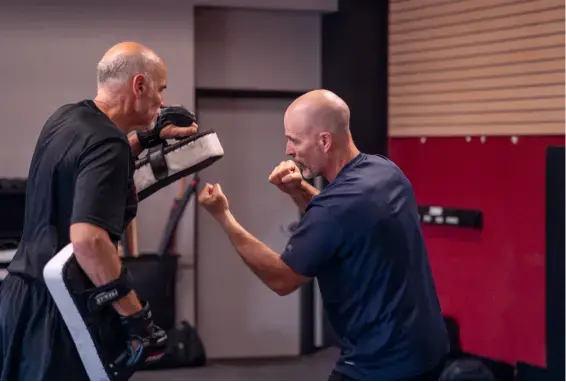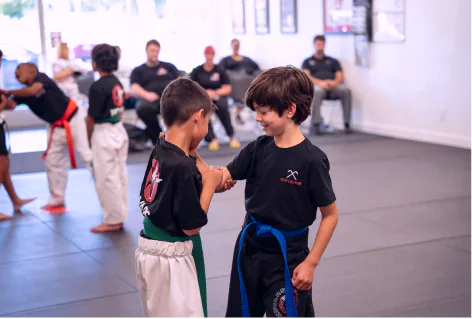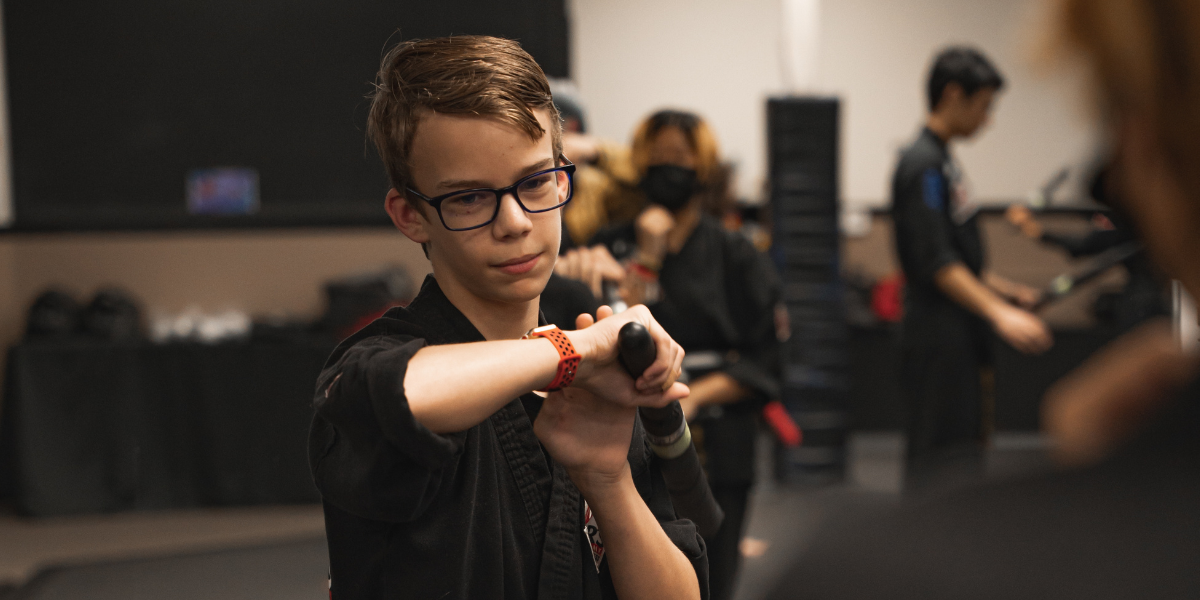How to Help Your Child Build Social Skills Outside of School
Discover fun, effective ways to help your child develop social skills outside the classroom—plus how martial arts fosters confidence and connection.

Is Your Child Struggling to Make Friends? You're Not Alone.
For many parents, it's painful to watch a child sit on the sidelines at the birthday party or come home upset after another awkward school interaction. While social skills are critical for a child’s happiness and success, they don’t always come naturally—and school alone may not be enough to help kids build them.
So how can you support your child in developing real-world social confidence?
Why Social Skills Matter More Than Ever
In today’s hyperconnected—but often isolating—world, kids need strong social abilities to thrive. According to a study by the Collaborative for Academic, Social, and Emotional Learning (CASEL), children with well-developed social skills perform better academically, have fewer behavior problems, and enjoy more meaningful relationships.
Strong social skills help children:
- Form friendships and build support networks
- Express themselves clearly and respectfully
- Navigate conflict and manage peer pressure
- Develop empathy and emotional intelligence
And like any other skill, they can be learned and strengthened with the right environment and experiences.
5 Parent-Approved Ways to Boost Your Child’s Social Skills
Here are some practical and fun ways to nurture your child’s interpersonal development:
1. Model Good Social Behavior
Kids learn by watching. Use everyday interactions to demonstrate active listening, kind communication, and positive body language. Narrate your behavior when appropriate—“I’m asking the cashier how their day is going because it’s polite.”
2. Set Up Low-Pressure Social Opportunities
Smaller playdates, structured group activities, or one-on-one hangouts can be less intimidating than large events. Gradually increasing social exposure can help anxious or shy children build confidence.
3. Use Books and Role-Play
Stories and pretend play are excellent tools for teaching empathy and conversation skills. Ask questions like, “How do you think that character felt?” or practice how to start a conversation with a new classmate.
4. Celebrate Small Wins
Recognize when your child makes an effort, even if it’s just saying “hello” to a neighbor. Praise effort, not just results—it reinforces that growth comes from trying.
5. Enroll in Structured, Social Activities
Team-based or group classes offer natural ways to practice cooperation, communication, and leadership—especially when guided by supportive instructors.
Why Martial Arts Is a Hidden Gem for Social Growth
Many parents are surprised to learn that martial arts isn’t just about kicks and punches—it’s a powerful tool for social development.
Here’s how martial arts supports kids who need help with social skills:
- Small class sizes provide a safe space for interaction without overwhelm.
- Partner drills encourage cooperation, communication, and trust.
- Respect-based culture teaches kids how to listen, follow directions, and treat others with kindness.
- Consistent group structure helps children build friendships with peers they see regularly.
- Instructors as role models show kids how to lead with confidence and empathy.
Whether your child is shy, struggles with boundaries, or just needs practice making friends, martial arts creates a structured yet fun environment to grow those vital interpersonal muscles.
Social Confidence Starts With Connection
If you’re in the Sacramento area, Kovar’s Martial Arts offers classes specifically designed to build confidence, respect, and communication—skills that will serve your child far beyond the mat.
With 9 convenient locations, Kovar’s creates a welcoming space where kids don’t just learn martial arts—they learn how to connect.
Ready to help your child thrive socially in a supportive, screen-free setting? Discover how martial arts builds lifelong social skills at Kovar’s.



